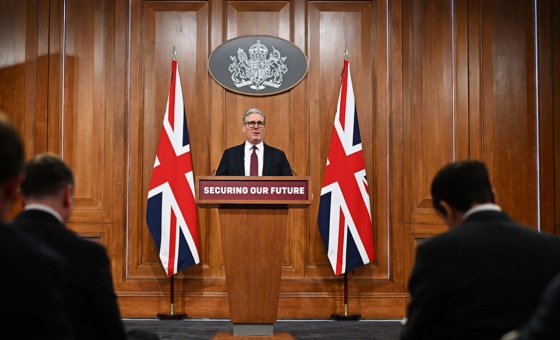This is the last article you can read this month
You can read more article this month
You can read more articles this month
Sorry your limit is up for this month
Reset on:
Please help support the Morning Star by subscribing here
BACH’S Goldberg Variations present a daunting challenge to artists of any calibre. A keyboard legend in the classical repertoire, one of its major tasks is marrying the intimidating intellectual demands of the work with the need for the player to find their own interpretation.
Now London-based, Siberian-born pianist Pavel Kolesnikov was a student of Moscow State Conservatory, London’s Royal College of Music and Brussels Queen Elisabeth Music Chapel. He was a BBC Radio 3 New Generation Artist from 2014 to 2016 and his albums to date include works by Frederic Chopin, Ludwig Van Beethoven and Louis Couperin.
As well as matching the holy with the worldly, Kolesnikov performs Bach’s masterpiece with all the precision of a luxury Swiss watch, combining a powerful inner passion and heightened meditative power.
“Intense, emotional and pure” is how Kolesnikov describes the experience of making the recording, the fruits of a collaboration with Rosas Dance Company founder and choreographer Anne Teresa De Keersmaeker and the spirit of dance, so fundamental to Bach, is never far away in this compelling album.
Majestic in its architecture, the Goldbergs were written in 1741, originally as a composition for harpsichord. Consisting of an aria and a set of 30 short variations, lasting some 80 minutes, it was first performed, possibly by Johan Gottlieb Goldberg, a talented pupil of Bach.
As well as a celebration of keyboard virtuosity, the pieces are an investigation into Baroque’s structural rigour and form, with the opening three-minute aria setting the scene. Bach’s delicate lines are impeccably realised by Kolesnikov, who brings a controlled, yearning emotion to the fore.
The ensuing variations embellish themes already explored, building in power and new rhythmic dynamism, before slowing to a close.
Var 2 establishes a new consistent tempo winding around graceful pulsing bass and high refrains, Var 5 bristles with rapid energy and melodic dance leanings before the pace lets up on Vars 6 and 7 with the suggestions of a slow Baroque dance based on clever winding basslines.
Var 9 opens with the deftest of touches before winding down with elegant poise. The slow tempo is quickly lost and by Var 15 the quick fire tempo returns, requiring new energy and ever more detailed powers of concentration from the pianist before a mid-tempo reflective Var 16 provides further meditative reflection and bass power precision.
Perhaps the highlight of the album is the closing aria da capo which revisits themes and introduces new rising and falling trills, merging into ever more subtle conclusions.
The sound, warm and detailed, is entirely sympathetic to Bach’s monumental courage and ambition.
Released on Hyperion.











